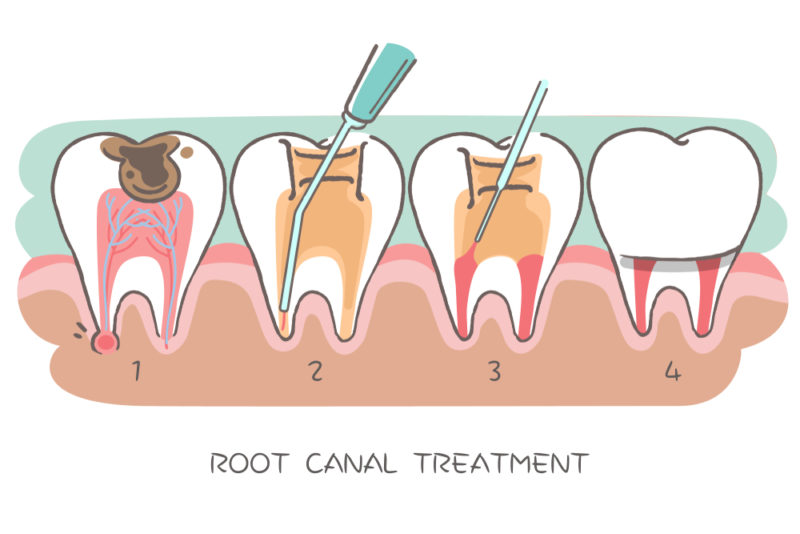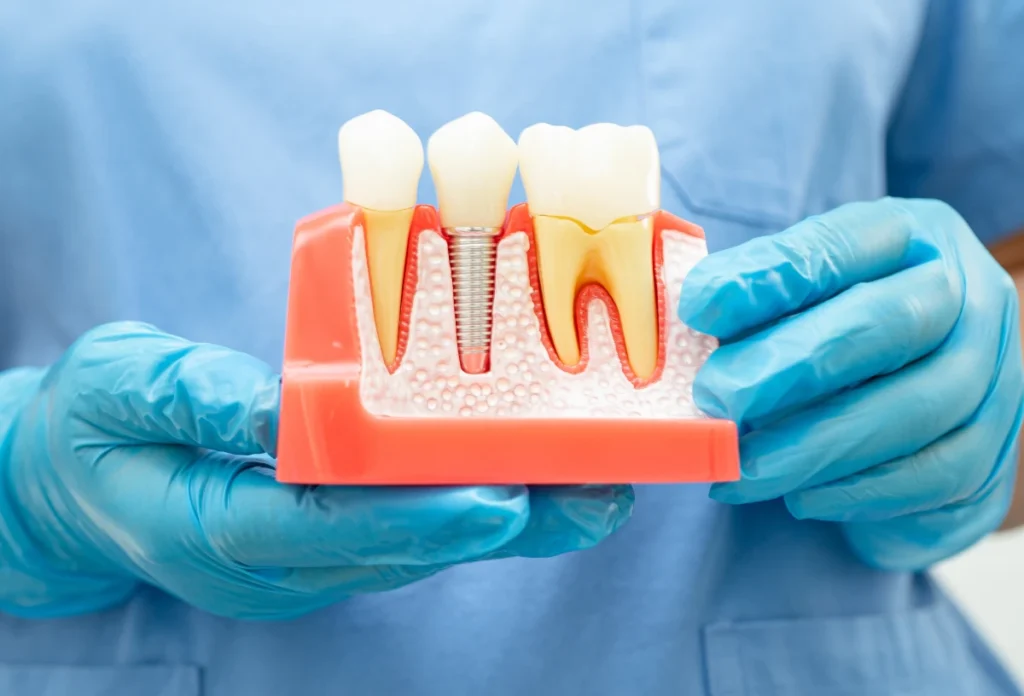Updated: 3/04/2020
Root Canal Awareness Week is March 25-31 this year, and we’re debunking a popular root canal myth every day this week.
MYTH #5: It is better to just pull the tooth
Many people believe that the benefits to root canal therapy are short-term and will wear off relatively quickly. This myth was started by patients whose tooth broke months after receiving the treatment.
However, contrary to common belief, it isn’t the root canal that caused the breakage of the tooth. It’s actually caused by poor restoration of the tooth.
Because the removal of the nerve causes a blood supply shortage inside the tooth, it will eventually become brittle. A poorly fitted filling or lack of a crown on the tooth may cause it to eventually break. The actual procedure of root canal therapy, however, has a very high success rate. In fact, many root canal-treated teeth last a lifetime.
Why Save Your Teeth?
Regardless of whether people believe this myth or not, some people would still much rather consider the option of extraction in substitution of a root canal. But this isn’t recommended, as you should try to save your natural teeth if possible. No implant or denture is as strong and long-lasting as a real tooth with the root intact.
If you choose extraction, you will either be left with an empty space in your mouth, or you will be given a bridge or implant to replace it. However, neither option is superior to getting a root canal. Empty space can inhibit chewing, affect the way the jaw closes or even cause deterioration of the jawbone.
On the other hand, filling the empty space with a bridge or implant (which may not last as long) can also cause health problems, as there may be certain limitations on what you can eat. You may not be able to maintain a healthy and balanced diet, which will have negative effects on your overall health. In addition, having a bridge or implant placed adds a significant amount of time to the procedure and may often require several visits to secure the replacement tooth.
Does a Root Canal Weaken Your Tooth?
On the contrary, a root canal will ultimately strengthen your tooth for longer use and wear. While cleaning out the pulp chamber will initially weaken the tooth more, it is then reinforced with a metal post and crown.
Should I Get a Tooth Extraction or a Root Canal?
It is up to you whether you choose to extract or get a root canal, but root canals are typically recommended by dentists over extraction because of the lasting benefits as opposed to the risk that comes with extraction. Talk to your dentist about any questions or concerns, and he or she can help you decide what the best option is for you.
Sign up to receive email updates for the 1Dental Blog so you don’t miss any future dental news! You can find the subscription box at the top right of the page or simply click here.
See the rest of the series:
MYTH #1: Root canal treatment is painful.
MYTH #2: Root canals cause illness.
MYTH #3: Root canals are unnecessary if you’re not in pain.
MYTH #4: Root canals are a lengthy process.
MYTH #5: It is better to just pull the tooth.






